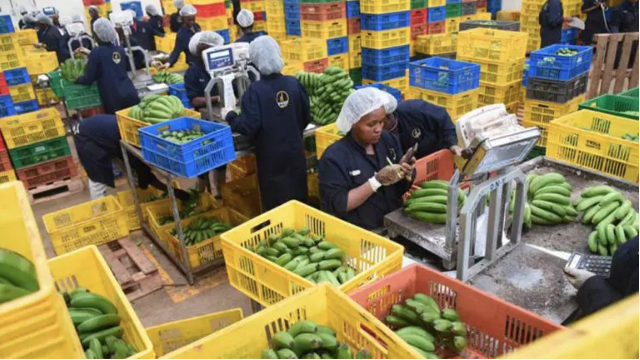African food processors stand at the forefront of a burgeoning economic revolution on the continent.
With the demand for processed food skyrocketing due to rapid population growth and urbanization, these processors have the potential to drive economic growth, create jobs, and improve food security.
A recent report by the Malabo Montpellier Panel, titled "VALUE-UP: Policy Innovations to Advance Africa's Food Processing Sector for Growth, Jobs, and Health," underscores the transformative power of this sector.
By capitalizing on the rising demand for processed foods, African governments and food processors can create a thriving industry that benefits both consumers and the economy.
Leading the way in this food processing revolution are Kenya, Ghana, and Senegal.
Read More
These countries have implemented strategic policies and initiatives to attract investments, enhance infrastructure, and foster a conducive business environment.
Kenya, for example, has successfully leveraged its Special Economic Zones and Export Processing Zones to attract foreign direct investment and stimulate growth in the food processing sector.
The report highlights the immense potential of the food processing sector to create a multitude of jobs, particularly for young people who make up a significant portion of Africa's population.
Joachim von Braun, Co-Chair of the Malabo Montpellier Panel, emphasised the transformative potential of the sector, stating, “A vibrant food processing sector creates jobs. If carefully designed, Africa’s food processing can deliver more diverse, nutritious, less perishable, and more convenient foods that improve people’s well-being, contribute to sustainable economic growth across the continent, and especially women can benefit.”
Von Braun also highlighted the sector’s capacity to address the pressing issue of youth unemployment, given that young people constitute the majority of Africa's population.
By transforming raw agricultural products into value-added processed goods, the sector can generate employment opportunities across the value chain, from farming to manufacturing to distribution.
Beyond job creation, the food processing sector can also play a critical role in improving food security and nutrition.
By producing a wider variety of processed foods, including more nutritious and convenient options, Africa can reduce its reliance on food imports and ensure that its population has access to a diverse and affordable diet.
However, realizing the full potential of the food processing sector requires concerted efforts from governments, businesses, and international organizations.
Addressing challenges such as infrastructure development, access to finance, and skills gaps is essential for creating a sustainable and competitive sector.
By implementing sound policies, investing in infrastructure, and fostering a conducive business environment, African governments can unlock the immense potential of the food processing sector.
This sector can serve as a catalyst for economic growth, job creation, and improved food security, paving the way for a more prosperous and resilient Africa.












